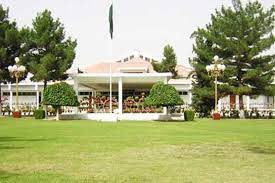The hard situation of CM selection process: Amidst the intricate web of conflicting interests and differing viewpoints, the need for effective communication and meaningful dialogue cannot be overstated. The stakeholders must engage in open discussions that transcend personal or party agendas, to arrive at a choice that reflects the aspirations and needs of the people of Balochistan.
Ensuring Integrity: The Role of the Parliamentary Committee in CM Selection process
The role of the parliamentary committee, intended to facilitate a fair and unbiased selection process, must be upheld with utmost integrity. The selection of an interim chief minister holds profound implications for the province’s governance and stability. Therefore, the committee’s composition should mirror the diverse political landscape of Balochistan, encompassing voices from all major factions to ensure a comprehensive representation of interests.
Learning from the Past: Prioritizing Transparency and Accountability
Furthermore, lessons from the past must not be overlooked. Balochistan has navigated through complex political dynamics, and these experiences must inform the decision-making process. Prioritizing transparency, accountability, and the spirit of collaboration will not only ease the current tensions but also set a precedent for future leadership transitions.
Critical Crossroads: Shaping Balochistan’s Trajectory
In this pivotal moment, Balochistan stands at a crossroads, where the choices made today will shape its trajectory for years to come. The deliberations taking place within the walls of the Balochistan Assembly hold the potential to either deepen divides or pave the way for a harmonious transition of power. The responsibility lies with the region’s leaders to rise above personal interests and embrace the broader mission of serving the province and its people.
Leadership Challenges: Discord in Nominating an Interim Chief Minister
As the eyes of the nation turn toward Balochistan, it is a time for leadership that is not only astute but also compassionate – a leadership that recognizes the significance of consensus-building and the power of unity. Only through a collaborative and inclusive approach can Balochistan overcome its current challenges and embark on a path of progress, stability, and prosperity.
The political landscape of Balochistan is currently marred by a series of intricate disputes, as the region’s leaders grapple to nominate an interim chief minister following the conclusion of Mir Abdul Qudoos Bizenjo’s term. The process, originally aimed at establishing consensus, has now resulted in discord between the opposing factions, highlighting the challenges of maintaining unity within the political spectrum.
Stalemate and Complications: The Nomination Process Unfolds
In an unexpected turn of events, the collaborative efforts between the outgoing chief minister and the opposition leader, Malik Sikander Khan, have faltered in their pursuit of a mutual candidate for the interim chief minister position. This stalemate has led to the involvement of a parliamentary committee, which was tasked with selecting the interim chief minister through a vote. Nevertheless, this seemingly objective approach has not been without its complications, as disagreements have arisen even within the opposition parties regarding the composition of the committee.
Fragility of Accord: Setbacks in Consensus Building
One notable setback emerged when Mir Abdul Qudoos Bizenjo, situated in Islamabad, declined to endorse the nomination of Mir Ali Mardan Domki as the caretaker chief minister, a proposition presented by former CM Jam Kamal Khan Alyani and Malik Sikander Khan. These two proponents had reportedly secured the support of interim Prime Minister Anwaarul Haq Kakar prior to making the announcement. Yet, despite their endeavors to depict Domki as the consensus candidate, Bizenjo’s resistance underscored the fragility of this accord.
Inclusivity and Representation: Reservations in the Selection Process
In response to the opposition’s decision to put forth names from the Jamiat Ulema-e-Islam-Fazl (JUI-F) for the parliamentary committee, both the Balochistan National Party (BNP-Mengal) and Pashtoonkhwa Milli Awami Party (PkMAP) have expressed deep reservations. This is due to the exclusion of their members from the selection process, signaling the necessity for inclusivity and representation within the committee.
Complex Layers: Involvement of Balochistan Governor
The involvement of Balochistan Governor Malik Abdul Wali Kakar added another layer of complexity, as rumors of his resignation circulated across social media. However, Governor Kakar promptly dismissed these claims, asserting his commitment to the governorship and dispelling any notions of his imminent departure from office.
Unity Amid Uncertainty: Prioritizing Cooperation in Critical Moments
As the deliberations continue and the political landscape remains fraught with uncertainty, it becomes imperative for all stakeholders to prioritize cooperation over division. Balochistan’s stability and progress hinge on the ability of its leaders to transcend party lines and forge a path forward that is founded on unity and collective decision-making. In these critical moments, the spirit of compromise and inclusivity must guide the region toward a resolution that serves the best interests of its citizens and ensures the smooth functioning of its governance.


